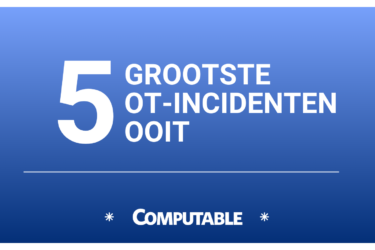The reason why e-mail and e-commerce work well is because users, suppliers and service providers have to work together or be excluded. This means that even IBM and Microsoft must accept standards, much as it may hurt them. Fortunately the same is true of Supply Chain Management (SCM) and thus some real progress is being made with Web Services, XML and other standards. Now that RFID appears to have become the next big thing in SCM and point-of-sale (EPOS), the recent good work on standards must be kept up.
The retail industry has been through a lot of work in this direction already with bar code standards. There is however a warning there, which it appears is being heeded, because it proved a difficult task to establish the bar code standards, due to many unforeseen problems. The early runners Savant and the Auto-ID Centre have now got together under the banner of an organisation called EPCglobal, which I suspect is an Open Source type of organisation, funded by industry donations. They are producing the standards for Electronic Product Codes (EPC). This is not a static target and as RFID tags get more capable there must be further standards. In a supply chain situation, in which multiple companies are cooperating across multiple countries, multiple standards would be disastrous, so it is important that any industry specific organisations base any extensions needed on the core EPCglobal standards. The standards must be quite extensive, if simple, to cover physical aspects such as frequencies and power levels as well as protocols and data formats.
It would be nice as well to think that there might be some standards to follow for the application packages which will use the data from RFID tags, but there are already too many packages on the market for that to happen. The current SCM packages and the EPOS/Data Warehousing applications are already in use with bar code technology. In the simplest cases there will be little difference between processing data collected with bar code or with RFID readers, but the extra capabilities of RFID will soon require some significant changes to the software packages.
There will inevitably be yet another of those seemingly endless software layers to interface between the application packages and the RFID sub-systems, which may well include writing data, albeit simple data, back – something not relevant to bar codes. Think of the need for software for filtering, smoothing, aggregating and validating all that data! There will have to be significant investments made at the point-of-sale, which is another reason for avoiding it and focusing on SCM and inventory control in the first place.
However the thing that is exciting Microsoft, IBM, Oracle, Sun, et al is the potential to generate lots and lots more data since RFID can be more automated than bar codes. It is not necessary to generate masses more data but the IT industry is not renowned for careful design! Systems always appear to expand to fill the available space and it is almost inevitable that excess data will be generated. The suppliers will encourage this as much as they can, because it will create a demand for more of their product. They are rubbing their hands at the prospect because the increase could be such that whole systems will need upgrading. Forget Terabytes of data, think of Petabytes instead and what about the communications bandwidth? The whole industry will be behind the excessive use of RFID. Even Intel will love it because here at last will be a need for their 64-bit processors.< BR>
Martin Healey, pioneer development Intel-based computers en c/s-architecture. Director of a number of IT specialist companies and an Emeritus Professor of the University of Wales.








